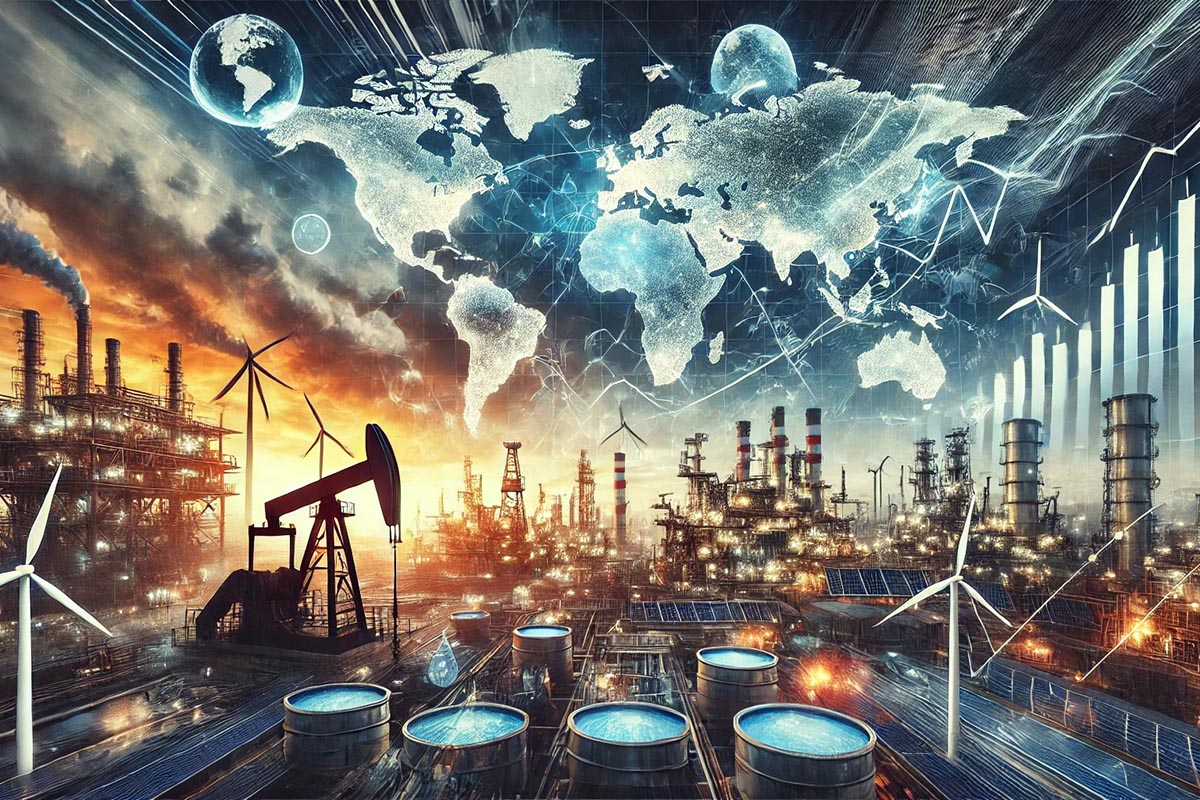In the past, OPEC (Organization of the Petroleum Exporting Countries) played a dominant role in regulating the global oil market. In France, as in many other economies, the decisions made by this cartel had a direct impact on energy prices, influencing economic policies and the daily lives of consumers. But today, this domination seems to be crumbling.
OPEC faces growing challenges, whether from the rise of non-member producers, such as the United States with its shale oil boom, or global efforts to reduce dependence on fossil fuels in favor of renewable energy. This change is also reflected in recent cartel decisions, which appear less effective in controlling price fluctuations in global markets.
France, like many other importing countries, is observing this development carefully. For now, OPEC is trying to maintain its influence by tightening its production quotas, but the market has become more complex. Non-OPEC producers and new geopolitical dynamics are redefining the rules of the game. In short, OPEC is no longer the all-powerful force it once was, but it remains a player to watch closely.
https://srqbacklot.com/energie/la-plus-grande-eolienne-de-la-planete-a-commence-a-faire-quelque-chose-detrange-20-mw-plantes-au-dessus-de- the-sea/595130/
The changing global oil market: New players and diversification of sources
The global oil market is changing. As the demand for oil continues to evolve, new players are emerging on the international scene. Countries like the United States, Brazil, and even some African countries are becoming major producers, changing the distribution of power in the energy market. Diversification of energy sources, particularly with the rise of natural gas and renewables, also plays a key role.
France, although not an oil producer, is directly affected by these developments. Dependence on oil imports, particularly from OPEC countries, has pushed France to diversify its own energy sources. THE nuclear remains the main French response to these challenges, but the country is also investing massively in solar, wind and hydrogen to reduce its vulnerability to global oil shocks.
At the same time, geopolitical tensions, such as those between Russia and Europe, or developments in the Middle East, profoundly influence the global energy balance. France, through the European Union, has taken measures to reduce its dependence on traditional suppliers, while pursuing an ambitious energy transition strategy to achieve carbon neutrality by 2050.
https://srqbacklot.com/energie/situee-dans-un-village-despagne-cette-usine-produira-12-millions-de-litres-dhydrogene-vert-par-electrolyse/595124/
Global oil demand: Towards a continued increase despite the energy transition?
As international efforts to reduce fossil fuel consumption increase, forecasts for 2024 indicate a notable increase in global oil demand. This consumption should increase by 1.8 million barrels per day next year, a progression that raises questions about the effectiveness of the current energy transition.
In France, this increase in oil demand is being observed with a mixture of caution and realism. The transport, petrochemical and aviation sectors, among others, continue to rely heavily on oil. Although the French government is actively pushing for decarbonization and investing in green solutions, it is clear that some industries cannot yet completely do without this fossil resource.
The increase in global consumption is explained by several factors, including the growth of emerging economies, where the need for energy to support development remains crucial. At the same time, renewable energy technologies are not yet sufficiently developed or competitive to meet all energy needs, particularly in regions where infrastructure has yet to be built.
This contradiction between increasing oil demand and climate goals raises questions about how France and other countries will manage this transition without compromising their commitments to reduce carbon emissions.Economic and environmental consequences: How to reconcile growing demand with climate goals?
The continued rise in oil demand presents a major dilemma for France, as well as for other countries engaged in ambitious efforts to reduce greenhouse gas emissions. As global oil consumption increases, governments are faced with the need to
maintain economic stability while meeting their climate goals. In France, the cost of this energy transition is a subject of debate. Investment in renewable energy, while crucial, requires considerable funds and long-term planning. In addition, some key industries for the French economy, such as aeronautics, are still heavily dependent on oil and are struggling to find viable alternatives in the short term.
On the environmental front, continued oil consumption is in direct contradiction with the
carbon neutrality targets set by France and the European Union. The solution may lie in a gradual decarbonization of the most energy-intensive sectors, combined with more intense efforts to develop green technologies and improve energy efficiency. Faced with these challenges, France has a unique opportunity to play a leading role in Europe by showing that it is possible to reconcile
economic growth and environmental sustainability. But the road ahead is long, and the tension between growing demand for oil and climate imperatives will remain a key issue for years to come.


